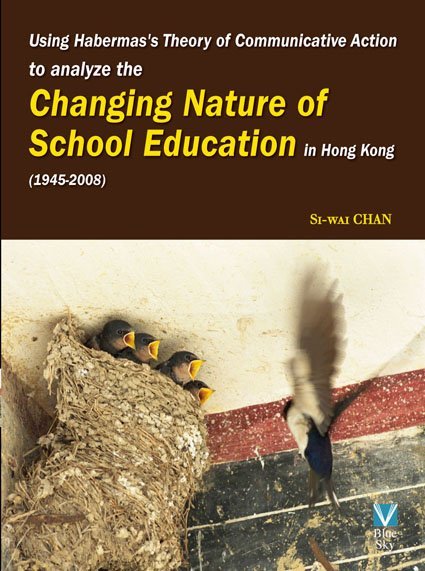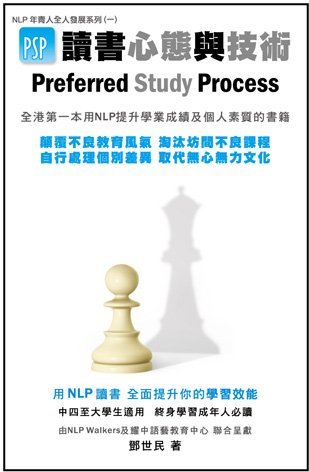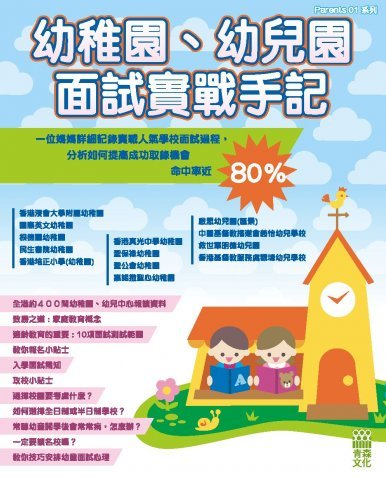This book’s discussion is based on Habermas’s Theory of Communicative Action. Jürgen Habermas, is known for his work on the concept of modernity, particularly with respect to the discussions of rationalization originally set forth by Max Weber; arguing it has a limited view of human action.
By using and to extend the concept of Habermas’s Theory, Chan handles this book by focusing how social reproduction was possible in school education, how school education was worked in general, and how school education was developed.
This book focuses on how social reproduction was possible in school education, how school education was worked in general, and how school education was developed.
In this book, Chan states that, “(i)n my personal experience as a secondary school teacher in Hong Kong, I observed that many of my students with little family support were not admitted into higher education. They entered into the job world after completing their secondary studies. I wondered whether, in my own professional work, I had helped, to some extent, to perform such social reproduction.” Moreover, he tries to seek for an answer, “I began to study Habermas’s theory of communicative action, and studied how it could be applied to study the relation between school education and society in Hong Kong, especially in explaining how social reproduction was achieved.”
Furthermore, in this book, he attempts to understand the phenomenon of social reproduction through school education, and contributes to the current discussion on how school education could be developed in Hong Kong.
本書特色
This book is principally based on Dr Chan Si Wai’s dissertation; the summary and conclusions drawn from the analysis of school education in Hong Kong, the study elucidated a new and critical approach in sociology of education. This approach, based on the theory of communicative action, did provide a conceptual framework for a fuller picture of education, and for a pathway to further development in education.
Si Wai CHAN
Si Wai CHAN holds a Doctor of Education from Durham University, The United Kingdom. He is currently a secondary school teacher, nurturing students for more than thirty years.
- 目錄
- SCHOOL EDUCATION AND SOCIETY
- 1.1 The rationale of the study 012
- 1.2 The rationale of using Habermas’s perspective in the study 016
- 1.3 Interpreting the relation between school education and society in Hong Kong 018
- 1.4 Research questions or foci of this study 022
- 1.5 Organization of this study 023
- LITERATURE REVIEW
- 2.1 The current approach in sociology of education 027
- 2.2 A brief account of Habermas’s theory of society based on his theory of communicative action 030
- 2.2.1 Introduction 030
- 2.2.2 A meta-theoretical level of analysis of communicative action 037
- 2.2.3 An epistemological, or methodological level of analysis ofcommunicative action 041
- 2.2.4 An empirical level of analysis of communicative action 044
- 2.2.5 An increase in complexity of network of communicative interaction 047
- 2.2.6 Habermas claims for universality of communicative rationality 060
- 2.2.7 A three-scale analysis of situational analysis of school education 062
- 2.3 Five paradigms of theories of social reproduction 063
- 2.3.1 Systems and functionalist theories 065
- 2.3.2 Economic-reproductive theories 070
- 2.3.3 Class-cultural reproductive theories 074
- 2.3.4 Class-bureaucratic theories 080
- 2.3.5 Integrative-reproductive models 084
- The state-hegemonic theories 084
- The transformative-resistance theory 086
- 2.4 The recent approaches or works of analysis of the development of education in Hong Kong 088
- METHODOLOGY
- 3.1 Setting out approaches of the study 092
- 3.2 Setting out research methodology 096
- 3.2.1 Research design 096
- 3.2.2 Sources of data 098
- 3.2.3 Method of analysis 102
- A THREE-SCALE ANALYSIS OF SCHOOL EDUCATION IN HONG KONG
- 4.1 How symbolic reproduction of the lifeworld of the students is worked - analyzing school education at classroom scale 107
- 4.2 How school education is worked in general 116
- 4.2.1 Analyzing school education at classroom scale 119
- 4.2.1.1 Project learning 119
- 4.2.1.2 Classroom management 123
- 4.2.1.3 PATHS 127
- 4.2.1.4 Assessment for Learning 129
- 4.2.2 Analyzing school education at school scale 132
- 4.2.2.1 Learning circle of school curriculum 133
- 4.2.2.2 A caring school – the whole school approach in guidance for students 135
- 4.2.2.3 Career guidance programme 139
- 4.2.2.4 Internal school self-evaluation 142
- 4.2.2.5 External school review 142
- 4.2.3 Analyzing school education at regional scale 145
- 4.2.3.1 Teacher Competence Framework (TCF) 145
- 4.2.3.2 The Continuing Professional Development Framework for School Principal (CPD) 147
- 4.2.3.3 Student Learning Profile (SLF) 148
- 4.2.3.4 The General Aims of School Education 150
- 4.2.1 Analyzing school education at classroom scale 119
- 4.3 A summary 152
- THE DEVELOPMENT OF EDUCATION IN HONG KONG (1945-2008)
- 5.1 From 1945 to 1965 -- a period of reconstruction, slow expansion and transformation of basic school education 168
- 5.1.1 The first set of interchange relation 169
- 5.1.2 The second set of interchange relation 173
- 5.2 From 1965 to 1982 -- a period of rapid expansion of basic and compulsory school education 177
- 5.2.1 The first set of interchange relation 179
- 5.2.2 The second set of interchange relation 183
- 5.3 From 1982 to 1997 -- a period of rapid expansion of school education accompanying emphasis on quality provision 188
- 5.3.1 The first set of interchange relation 190
- 5.3.2 The second set of interchange relation 201
- 5.4 From 1997 to 2008 -- a period of implementing quality school education 210
- 5.4.1 The first set of interchange relation 215
- 5.4.2 The second set of interchange relation 220
- 5.5 A summary 227
- 5.1 From 1945 to 1965 -- a period of reconstruction, slow expansion and transformation of basic school education 168
- SUMMARY: SOCIAL REPRODUCTION THROUGH SCHOOL EDUCATION
- 6.1 Theories of social reproduction 241
- 6.2 Three steps in conducting this study 246
- 6.3 Situational analysis of school education: symbolic reproduction of the lifeworld at classroom scale 248
- 6.4 Situational analysis of school education: how school education is worked in general 250
- 6.5 Historical analysis of school education: how school education is developed 255
- 6.6 Concluding summary 262
- CONCLUSION: THE LOGIC AND DYNAMICS OF DEVELOPMENT OF SCHOOL EDUCATION
- 7.1 The logic of development of school education 270
- 7.1.1 A symbolic reproduction of the lifeworld at classroom scale and school scale 270
- 7.2 The dynamics of development of school education 271
- 7.2.1 An uncoupling of the lifeworld and the system at school scale 271
- 7.2.2 A colonization of the lifeworld by the system at regional scale 272
- 7.2.3 A colonization of the lifeworld by the system in the historical development of school education 273
- 7.2.4 Interpreting education reform in Hong Kong 274
- 7.3 A resistance to the dynamics of development of school education 276
- 7.3.1 A resistance to a colonization of the lifeworld by the system in school education itself 276
- 7.3.2 Open classrooms of progressive education movement and four pillars of learning 279
- 7.1 The logic of development of school education 270
- CONSTRUCTING A NEW CRITICAL APPROACH IN SOCIOLOGY OF EDUCATION
- 8.1 What is the current approach in sociology of education? 284
- 8.2 What does sociology of education examine? 285
- 8.3 How is school education examined? 286
- 8.4 Constructing a new and critical approach in sociology of education 288
- 8.4.1 The three level analyses of sociology of education 288
- 8.4.2 Three concerns for sociology of education 290
- 8.4.3 The normative foundation for a critical approach of sociology of education 292
- 8.4.4 The logic and dynamics of development of school education 294
- 8.4.5 The education reform in Hong Kong as a case study of the new and critical approach of sociology of education 295
- 8.5 A new and critical approach in sociology of education 297
- BIBLIOGRAPHY 300
- SCHOOL EDUCATION AND SOCIETY

 簡體中文 (即將支援)
簡體中文 (即將支援)










